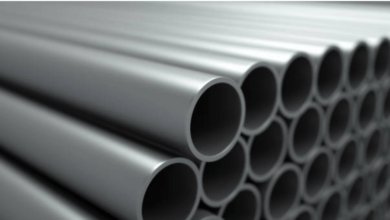The Environmental Impact of Regular Drain Maintenance

Keeping your drains clean might not seem like a major environmental concern at first. However, it plays a significant role in protecting our surroundings. Neglecting drains can cause many problems. These include polluted waterways and larger carbon footprints.
Today, we’ll discuss how proper drain maintenance benefits the environment and keeps our planet healthy.
Understanding Drain Maintenance
Drain maintenance means cleaning and checking drain systems often. This keeps them working well. It includes basic tasks like unclogging, checking for debris, and inspecting for damage.
Many people think that as long as water flows through the drains, everything is fine. However, failing to maintain drains can lead to bigger problems later on. For example, clogged drains with leaves or waste can block water flow.
Flooding can damage property and wash pollutants into nearby rivers or lakes. Regular maintenance addresses these problems before they escalate.
Pollution and Waterways
Poor drain maintenance mainly causes pollution in our waterways. If drains are not kept clear, rainwater can become trapped, leading to stagnant water. This water can breed mosquitoes and other pests.
When it rains, water runs over dirty surfaces. It picks up pollutants such as oils, trash, and chemicals.
Polluted water can flow into rivers and oceans. This harms wildlife and disrupts ecosystems. Polluted runoff is a major issue for water quality in the U.S.
Carbon Footprint and Drain Maintenance
Another important aspect of drain maintenance is its effect on carbon footprints. The carbon footprint measures all greenhouse gases released when making a product or providing a service. It shows how our actions impact the environment.
Regular drain maintenance helps reduce a community’s carbon footprint in several ways. Efficient drains manage stormwater well. This reduces the need for extra water treatment.
This efficiency means lower energy use, which directly reduces greenhouse gas emissions. Clean drains help prevent blockages. These blockages often need heavy machinery to fix.
The operation of such machines contributes to increased carbon emissions. By keeping drains clean, we help the planet and reduce our environmental impact.
Consider taking action today by looking into local services for drain cleaning in Centennial. It helps protect our environment and ensures a sustainable future for generations to come.
Benefits of Regular Drain Maintenance
Maintaining drains has several other benefits beyond environmental impact. Here are some key points to consider:
Improved Health
Clogged drains smell bad and attract harmful bacteria. Regular maintenance can help improve sanitation in communities.
Cost Savings
By performing regular maintenance, property owners can prevent expensive repairs in the future. It is much cheaper to maintain a drainage system than to fix serious problems caused by neglect.
Preventive maintenance stops costly emergencies. This includes burst pipes, severe blockages, and water damage. It helps you avoid expensive restoration work.
Enhanced Property Value
A well-maintained drainage system can improve property value. Buyers and tenants are more interested in properties that have good drainage practices in place.
Good drainage stops water damage, foundation issues, and landscaping problems. This keeps the property looking nice and strong.
Prevention of Water Damage
Blocked or broken drains can cause flooding. Regular maintenance keeps water flowing well. This helps prevent leaks, mold, and damage to structures.
Getting the Right Drain Maintenance
Keeping drains clean is not just convenient; it’s vital for the environment. Regular drain maintenance reduces water pollution and lowers our carbon footprints. If we prioritize these practices, we can help protect our planet. This also leads to a cleaner and healthier community for everyone.
Visit our website and read more.





